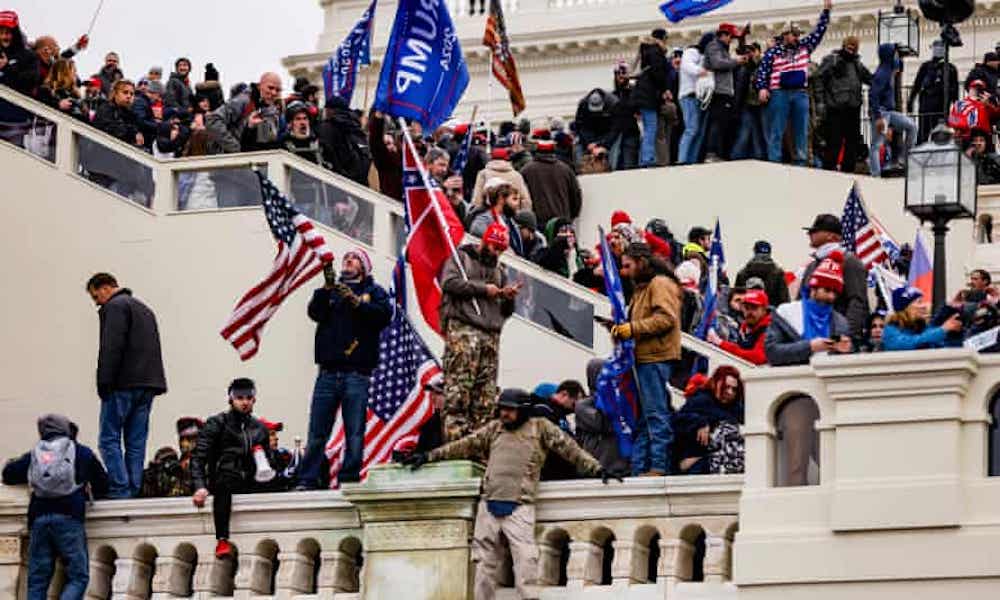
Will banning Donald Trump’s Twitter change American freedom of speech laws?
Have you ever misbehaved and had your social media accounts taken away by your parents? As an adult, it’s safe to say that this shouldn’t happen. Unfortunately for Donald Trump, his Twitter account and other social media platforms have banned him.
Could banning Donald Trump from social media impact America’s freedom of speech laws? Let’s find out.

What happened?
On January 6th 2021, shots were fired inside the Capitol building with one fatality. Pro-Trump protestors stormed the Capitol with the goal of disrupting the U.S. Senate’s Confirmation hearing. The protestors reportedly planned to occupy the building through the night to prevent the vote from being held, citing concerns about alleged election fraud. Onlookers are wondering if this will be the start of a second Civil War in the USA.
These events developed the same day Georgia announced the results of the Senate runoff election where Democratic candidates, Jon Ossoff & Raphael Warlock took the two remaining seats. Meanwhile, Congress was debating the results of the presidential election in Arizona.

Many citizens claimed that it was Donald Trump’s tweets which incited the protest upon the Capitol building. The stated reason for their initial protest was concerns about alleged widespread voter fraud, claims which Trump has tweeted several times before.
Now, Twitter & Facebook have decided to ban Donald Trump’s Twitter account. Snapchat & YouTube have also said they’re throwing more restrictions on Trump’s accounts. Although some are breathing a collective sigh of relief that they don’t have to hear about Trump’s tweets in the media every day, others are saying this will impact their freedom of speech.

Twitter ban
Donald Trump’s Twitter account has hardly been without controversy. In the early 2010s, Trump began vocally declaring support for the “birther” conspiracy (allegations that Barack Obama was born in Kenya and therefore ineligible to be president) and began vocalizing his objections to U.S. foreign policy around China & Iran.
It appears recent drama has caused Trump’s Twitter account to be removed, but that’s not the only thing. Other social media have also followed Twitter’s example and banned Donald Trump from their sites. These other sites include, Snapchat, TikTok, Facebook, Instagram, Pinterest, and YouTube are among the few social media sites to ban Trump.

Freedom of speech
According to The Guardian, “There is no legal responsibility for any privately-owned platform to host the president’s views, although there is obviously a broader moral consideration in letting voters (wherever they are in the world) hear/see the words of their elected official as well as a moral obligation in not spreading words that could incite violence.”
Senator Mark Warner of Virginia, of the Senate intelligence committee tweeted in the wake of Trump’s ban: “It’s important to remember, this is much bigger than one person… It’s about an entire ecosystem that allows misinformation and hate to spread and fester unchecked.”

Senator Warner wasn’t the only person to tweet about Twitter’s announcement to ban Donald Trump from their site. Montana Senator Steve Daines tweeted, “Big Tech censoring [Trump] and the free speech of American citizens is on par with communist countries like China and North Korea.”
It’s easy to see why Donald Trump’s ban could spark freedom of speech debates especially based on recent events including protests at the Capitol.
Jim Steyer from Common Sense Media told The Guardian about his views regarding Donald Trump’s social media ban & freedom of speech. Steyer stated, “[The violence] is a direct response to the misinformation, conspiracy theories and hate speech that have been allowed to spread on social media platforms.”
—
Donald Trump is officially banned from using social media. Could this impact our freedom of speech? Let us know your thoughts in the comments.



